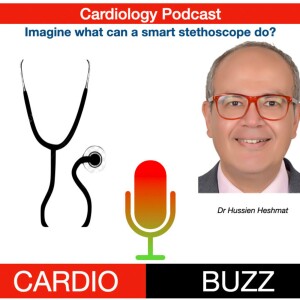
Saturday Mar 12, 2022
11: Imagine What a Smart Stethoscope Can Do!
It was back in the 19th century, exactly in the year 1816, Rene Laënnec, a French doctor was walking alone in the Louvre Palace in Paris. The 35-year-old physician and surgeon, observed two children playing by sending signals to each other using a long piece of solid wood and a pin. One child scratched a pin on a side of the wooden piece and the other child placed his ear on the opposite end of the wooden piece and received the amplified sound of the pin. Laennec loved the idea as he was a gifted musician who used to make and play on flutes.Shortly after, Laënnec who was known to be shy was called to see a lady with suspected heart disease. The lady was young and chubby, and so the bashful Laënnec was reluctant to stick his ears directly to her chest, which was the only way to listen to heart sounds at that time. In his moment of embarrassment, Laënnec recalled his observation of the children’s wooden sound transmission. That observation inspired his invention of the device which is now the symbol of physicians “the stethoscope”The first generation was a rolled tube to funnel where one end was on the patient’s chest and another side on the doctor’s ear. He called it the “stethoscope” derived from the Greek words stethos, meaning chest, and skopein, meaning to explore. For 200 years, the stethoscope was essential to any physical examination with dedicated cardiology types and pediatric types. However, the importance of the stethoscope has declined dramatically in favor of more sophisticated technologies. Clinical skills in general are dwindling. There has been a constant decline in practitioners’ ability to correctly identify heart sounds through auscultation, the accuracy of 22% in American trainees and slightly higher in fellows. No surprise as we are counting more on echo, angiography, CT, and MRI. We and patients trust these more than the good old stethoscope.But now, we are in the age of smart tools. We have smartphones, smart bags, smart lamps, and smart homes. How about a smart stethoscope? What would that look like and how useful would it be? Can it revive the dying stethoscope? Can it compete against the echo for example?https://doi.org/10.1016/S2589-7500(21)00256-9
No comments yet. Be the first to say something!